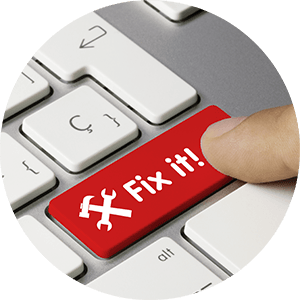Don't Start Credit Repair Before Reading This:
Not knowing these 6 Elements Could Cost You
You've probably heard that credit repair is simple and uncomplicated if you've been looking for solutions. Furthermore, it's likely that you've seen a number of articles asserting that credit restoration is easy to accomplish on your own or by hiring a professional.
However, credit rehabilitation is not a straightforward process; there are obstacles to overcome as well as some financial risk. You can recognize and handle these problems with the assistance of this article.
Your Right To Repair Your Credit
The Fair Credit Reporting Act (FCRA), which was passed in 1970, set rules to guarantee the confidentiality, truthfulness, and equity of all consumer credit data. Your right to contest any information on your credit report that you believe to be false, erroneous, or incomplete is outlined in the FCRA. The majority of the time, evidence of fraud, identity theft, or inaccuracies can be used to validate this type of credit report dispute.
You also have the right, under the Fair Credit Reporting Act, to contest unfavorable information that you believe to be untrue, prejudiced, and debatable (or "questionable"). This covers hard inquiries, delinquencies, late payments, and even collections. In other words, the FCRA isn't concerned by the validity of the negative item. However, challenging this second category of bad things on credit reports is challenging and requires using a dispute strategy that creditors, bill collectors, and credit bureaus have gotten good at using against you.
The Fair Debt Collection Practices Act (FDCPA) also applies to disputes involving debt collectors. This Act limits "how and when debt collectors can contact you, what they can do to get you to pay, and empowering you to dispute debts," even if it covers a wide range of rules.
6 Common Issues You May Encounter During the Repair Process
Many people who begin the process of repairing their credit eventually encounter one or more problems that, if left untreated, can make things worse. These are the six most typical difficulties you'll probably run into when trying to restore your credit.
1. Most Dispute Letter Templates Drop The Ball
The procedure for disputing unfavorable entries on a consumer's credit report is outlined in both the FCRA and the FDCPA. These procedures are outlined in a number of dispute letter templates that are publicly available online. Additionally, customers have been misled into thinking that all they need to do is download the dispute letter template, complete it, and mail it to the debt collector or creditor.
The majority of dispute letter templates have the flaw of being unduly legalistic, seeming menacing, and full of false information. Additionally, customers think that after reading their dispute letter, a person will find the legal justifications strong enough to get the unfavorable account removed. Regretfully, there is very little human contact during the dispute resolution procedure.
Many proponents of credit repair claim that the FCRA and FDCPA establish legal precedent and force creditors, debt collectors, and credit bureaus to remove negative items when the required paperwork is missing or a certain process is not followed. Canned dispute letter templates would function far better than they do if this were the case.
Credit bureaus, creditors, and collection agencies are aware that they cannot be forced to erase negative information from credit reports until they receive a court order or judgment, which is the sad truth about the credit repair process. Stated differently, they are aware that they can reject attempts at credit restoration until the complainant brings legal action.
2. The Credit Repair Process Runs on Automation
Even though it's always possible, it rarely happens that a single dispute letter will cause an erroneous item to be deleted from your credit report. How come? Automation is the first justification.
According to some estimates, the three major credit bureaus get around 20,000 disputes per day. Because of this, they have to automate the dispute response procedure, which mostly relies on the accuracy of the negative entries. A message is sent to the creditor or debt collector requesting them to confirm the negative item, and your letter is scanned into their computer system and given a 3-digit code for the sort of dispute. A human person will never see all the juridical jargon in your sincere dispute letter template.
It's possible that you requested confirmation of the negative item or proof that the debt is actually yours in your dispute letter. And the negative item is confirmed or authenticated with a few mouse clicks. A letter outlining the outcome is delivered to you once the issue has been "resolved."
Still, nobody bothered to check. The late payment date was not verified by a person. Nobody confirmed it was your signature by examining the actual signed documents. And you'll obediently keep sending disagreement letters in the hopes that something will change in the end.
3. The Dispute Letter Rejection Rate is HIGH
When consumers send dispute letters, they will be repeatedly turned down. Credit reporting companies, debt collectors, and creditors all appear to rely on the fact that most consumers give up on submitting dispute letters once the initial ones are returned unsatisfactorily. Finding the appropriate approach and resources (credit repair letters), overcoming rejection, and demonstrating a great deal of patience and tenacity are all important steps in the credit repair process.
4. Attempts to Repair Credit May Trigger Aggressive Collection Tactics
When customers challenge negative credit items on their credit reports, debt buyers and collection organizations adore it. A collection agency can infer from this information that you are keen to clear any unfavorable things from your credit report and work toward improving your credit. They observe a client who is keen to get her credit cleared for an upcoming purchase or credit event.
In an effort to recover the amount you owe, collection agencies may frequently use aggressive collection tactics in response to this information. These tactics may include intimidating letters, phone calls, and legal actions. They take that action because customers are more driven than ever to pay off outstanding bills.
5. Credit Repair Always Takes More Time Than You Think
Even though it's always possible, it rarely happens that a single dispute letter will cause an erroneous item to be deleted from your credit report. It is not certain that the item will be taken out of the way quickly, even if all the evidence points to your advantage. Credit repair is a patient process. It will likely take at least six months to remove any unfavorable material from your report, if you feel that they should. The effort may take several years if you have multiple unfavorable elements.
6. Your Credit Repair Company Lacks Expertise
Most local and national credit repair companies are competent, well-behaved, and provide excellent customer service. But these businesses frequently employ the same boilerplate wording found in rejected dispute letters. Selecting a business that possesses the knowledge and abilities required to appropriately negotiate with creditors and credit reporting agencies is wise.
Finding information regarding credit repair from reliable sources is crucial if you want to handle the process on your own, but it's harder than it would seem. To make sure the data you use as the foundation for your credit restoration strategies is accurate, you must do a thorough investigation. The credit restoration and credit repair letter materials on our website are intended to be of assistance to you.
Final Thoughts
Everybody with a credit report has the right to credit repair. However, it's difficult to remove every bad item from your credit record. You should be able to deal with these problems or avoid them completely now that you have a clearer understanding of the kinds of difficulties and problems that can occur when you work to restore your credit. Make sure you stay focused on the end result, regardless of whether a credit reporting agency rejects your dispute letter or collection companies utilize forceful methods to compel you to pay back your debt. You ought to start seeing benefits eventually.

Fix Your Credit
Skip the details and let's get strait to helping you fix your credit situation. Register today and get started.

Join Us
Start your own credit repair agency and take part in the lucrative income opportunity that is sales.

Speak to a Coach
Not sure where to start? That is ok! Book a FREE call and have your questions answered.

